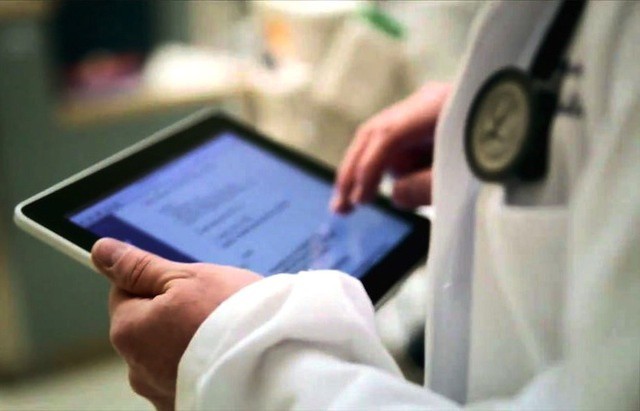The iPad has become a fixture in health care that simplifies the lives of doctors and nurses. It turns out that the iPad can improve the quality of care patients receive if it is used as a mechanism to record a patient’s medical history and/or as a way of monitoring that patient’s progress on follow-up visits.
Writing for The Economist Group, Boston Consulting Group Managing Director Paul Zwillenberg describes the advantages that Duke University has seen in using the iPad in its oncology clinics. The clinics give new patients an iPad with an 88-question medical history form to complete at their first visit. Patients also track their progress between visits using a secure, web-based system that enters data into the same records system.
Duke, which has begun using the iPad in similar ways in other medical specialties like gastroenterology and cardiology, has seen a range of benefits to using the iPad and web-based monitoring as supplements to traditional exams and consultations.
One notable improvement is that the system cut the time physicians spend documenting patient visits by 17%.
More importantly, the iPad interface appears to help patients provide more detailed and accurate information. Patients are more likely to be forthcoming and honest about topics like alcohol use, sex lives, anxiety and depression when entering data on the iPad than during a face-to-face consultation with a nurse or doctor. That broader knowledge helps doctors initiate conversations about issues that might be difficult or uncomfortable for patients to bring up otherwise.
The iPad also seems to help patients remember and describe their symptoms more accurately and comprehensively than during a consultation or exam. Three quarters of breast cancer patients at Duke were able to deliver more useful information as a result of the iPad and online questionnaire combination. And one-third said the approach prompted them to bring up issues with their doctors that might not have occurred to them otherwise.
It’s often easy to assume that iPads benefit the doctors and health care workers using them, but this example shows that the iPad has even more potential in improving patient experiences and outcomes — a pretty impressive feat in an industry where the device has started to become commonplace.
Via: MobiHealthNews


